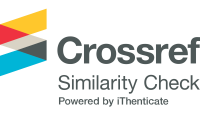A crise como oportunidade para repensar o Ordenamento Territorial
potenciar os vazios urbanos para a prática de Agricultura Urbana
DOI:
https://doi.org/10.54686/revjat.v2i.65645Palabras clave:
Agricultura Urbana, Ordenamento Territorial, Acesso à Terra, Inclusão SocialResumen
As crises, como a atual pandemia Covid - 19, são oportunidades para repensar os sistemas alimentares, mas a falta de acesso à terra especialmente nos perímetros urbanos é um obstáculo. Defende-se que o Ordenamento Territorial deve considerar a Agricultura Urbana como um instrumento de fortalecimento do tecido urbano e periurbano através do uso permanente ou temporário dos vazios urbanos não construídos. A Agricultura Urbana garante a soberania alimentar e responde de forma imediata às carências de famílias devastadas pelas crises económicas. Como não implica uma ocupação irreversível dos solos enquadra-se numa perspetiva de transformação dos vazios urbanas no que denominamos de “Zonas Agrícolas de Inclusão Social”.
Propomos ilustrar o estado da arte em Portugal através de dois processos distintos. O primeiro ilustra uma iniciativa sediada na Área Metropolitana do Porto, gerida por uma empresa de resíduos sólidos desde 2003, que tem vindo a coordenar a implementação de Hortas Urbanas nos vários municípios da região metropolitana. O segundo estudo de caso descreve a iniciativa da Câmara Municipal de Lisboa, iniciada em 2011, através de desenvolvimento de Parques Hortícolas que conjugam lazer com atividade agrícola. Os dois exemplos atestam a pertinência de uma política pública de acesso à terra que agregue as políticas de Ordenamento Territorial, Agricultura, e coesão social.
Descargas

Publicado
Cómo citar
Número
Sección
Licencia
- Autores mantém os direitos autorais e concedem à revista o direito de primeira publicação, com o trabalho simultaneamente licenciado sob a Licença Creative Commons Attribution 4.0 que permite o compartilhamento do trabalho com reconhecimento da autoria e publicação inicial nesta revista.
- Autores têm autorização para assumir contratos adicionais separadamente, para distribuição não-exclusiva da versão do trabalho publicada nesta revista (ex.: publicar em repositório institucional ou como capítulo de livro), com reconhecimento de autoria e publicação inicial nesta revista.
- Autores têm permissão para publicar e distribuir seu trabalho online (ex.: em repositórios institucionais ou na sua página pessoal) após a publicação inicial nesta revista, já que isso pode gerar alterações produtivas, bem como aumentar o impacto e a citação do trabalho publicado (Veja O Efeito do Acesso Livre).
- Foram feitos todos os esforços para identificar e creditar os detentores de direitos sobre as imagens publicadas. Se tem direitos sobre alguma destas imagens e não foi corretamente identificado, por favor, entre em contato com a revista Jatobá e publicaremos a correção num dos próximos números.













